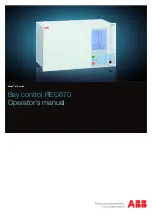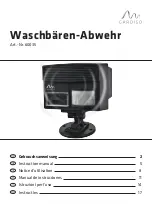
30
Description
2
2.1
Operating Elements and Connections
☞
• See the illustration on page 2.
97236
21 Finger switch with retaining ring
(Option)
To initiate the start signal instead of a foot switch.
☞
For
exact spot
dispensing requirements,
not
recommended.
2.2
Theory of Operation
The LOCTITE product is transported through a product feedline
4
of PTFE to the Pinch Valve by the
dispensing pressure in the product reservoir. An additional tubing protects this product feedline. The
dispensing takes place by the opening of the Pinch Valve. A single action cylinder is used as the
actuating assemble
7
. The control unit controls the dispensing either according to a set dispensing
time or as long as the start signal is present.
In the inactive position, the Pinch Valve is closed. The cylinder piston of the actuator assembly
7
pinches the product feedline
4
together with spring pressure.
The Pinch Valve is also capable of dispensing the smallest of quantities. For this purpose, the stroke of
the cylinder piston can be limited with the hexagon socket set screw
8
.
The amount of product dispensed is controlled by:
– The amount of pressure in the reservoir.
– The length of time the shutoff valve remains open.
– The stroke of the shutoff piston in the actuator assembly.
– The dispensing needle
14
.
1 Shutoff valve assembly with baseplate
2 Plastic connecting parts
3 Protection tubing
4 Product feedline
5 Hexagon socket set screw
Locks the actuator assembly
7
in the shutoff
valve assembly
1
.
6 Control air connection
7 Actuator assembly with Thrust Piece
8 Hexagon socket set screw
Limits the stroke of the cylinder piston in the
actuator assembly
7
.
Screwed in to the stop:
Piston stroke = 0 (no product!).
9 Hex-nut
Locks the setting of the screw
8
.
10 Thrust Piece
11 Threaded stem
12 Sleeve nut
13 Plastic cone
14 Dispensing needle
15 Luer-Lock tip cap
16 Pistol grip
17 Sleeve nut
18 Applicator Pencil
19 Retaining ring
20 Kink protection spiral
















































